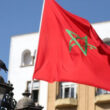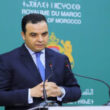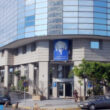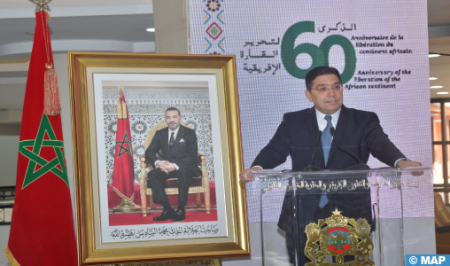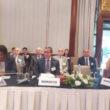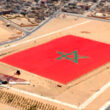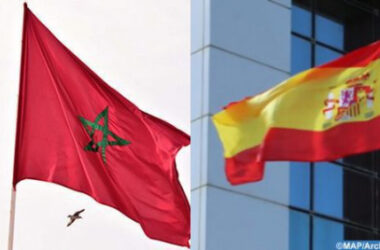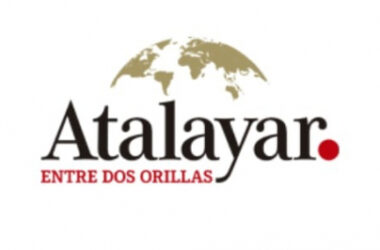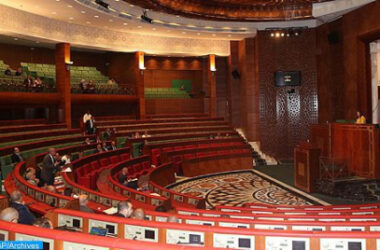The anniversary, which coincided this year with the commemoration of Africa Day (May 25), was an opportunity for participants in a ceremony organized by the Ministry of Foreign Affairs, African Cooperation and Moroccan Expatriates, to dwell on the unifying role of the late HM Mohammed V during this decisive period, having mobilized the Kingdom’s resources immediately after its independence in 1956 in the service of the liberation movements of brotherly African countries, in an atmosphere of pan-African communion and solidarity.
In a speech on this occasion, Nasser Bourita, Minister of Foreign Affairs, African Cooperation and Moroccan Expatriates, stressed that “the founding reign of His Late Majesty Mohammed V – May God have Him in His Holy Mercy – was in phase with the struggles for liberation, in Morocco and in Africa”.
“The late Sovereign – Father of the Nation – also made the Kingdom a land of welcome and rallying for liberation movements and African independence leaders”, he recalled, pointing out that Berkane, in eastern Morocco, was the sanctuary of liberation movements from the farthest reaches of Africa. He recalled that Nelson Mandela, Samora Machel, Agostinho Neto, Amilcar Cabral – among others – had their quarters there.
“Heir and Companion in the struggle of His illustrious Father, the late His Majesty Hassan II – may God rest His soul – has, in turn, spared no effort in the service of the stability and independence of brotherly African countries”, continued the Minister, noting that on several occasions, Moroccan soldiers have fought alongside brotherly African countries, and shed their blood on their soil, in the service of independence and the preservation of territorial integrity.
“The Founding Fathers of Pan-Africanism and African independence, always knew that to move forward, Africa had to know where it came from,” he said, explaining that “this is why Morocco has decided, to pay tribute to this shared history and our common destiny, to finalize one of the most important memorialization projects of the period of African independence, weaving the Ariadne’s thread between History and the Present that links the 54 States of the Continent.”
“We believe, in fact, that it is important for Africa to reappropriate its +Narrative+; to enhance its cultural heritage and nurture its collective identity,” he maintained.
“To take part in this, Morocco has set up a series of memorial initiatives designed to ensure that the flame of remembrance of the struggles and common battles for freedom and independence on our continent is never extinguished”, noted Bourita.
Also speaking on the occasion, Mustapha El Ktiri, High Commissioner for former members of the Resistance and Liberation Army, said that history records that, just after independence, the Kingdom implemented the African dimension through the pioneering project to which the late HM King Mohammed V had called, by hosting the Casablanca Conference in January 1961 and creating the Casablanca Group to develop a common African policy, political unity and economic, political and societal integration under the banner of Pan-Africanism.
He stressed that this forward-looking vision of the late HM Mohammed V was based on the historical, commercial, spiritual, cultural and political capital of Morocco’s relations with many African countries that had just gained their independence.
El Ktiri added that the late HM Hassan II continued to support this liberation project by backing African countries in their struggle for independence, recalling that the Kingdom was one of the founding members of the Organization of African Unity (OAU).
Under the enlightened leadership of His Majesty King Mohammed VI, Morocco has maintained its positions and principles towards the African continent, he continued, noting that the Sovereign, since His accession to the Throne of His glorious ancestors, has spared no effort in signing conventions and partnerships with African countries, and in establishing solid diplomatic and economic relations.
The ceremony, attended by members of the government and numerous ambassadors from countries accredited to the Kingdom, was marked by the screening of a documentary on “Morocco and liberation movements in Africa”.
Participants in the event also attended the inauguration of the exhibition “Frères d’armes, du combat pour l’Indépendance africaine au serment du co-développement” (Brothers in arms, from the fight for African independence to the oath of co-development), featuring a number of photographs by photographer Mohamed Maradji.


